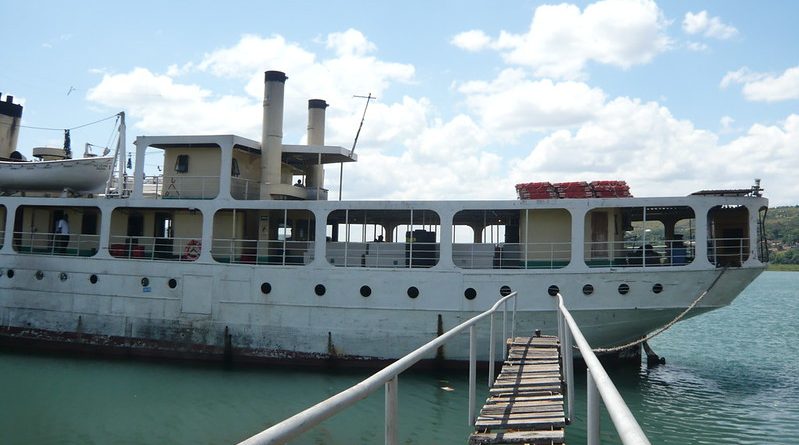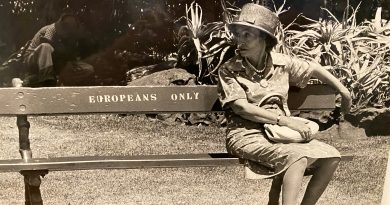The Liemba, a truly tough boat
World War One, although of course mainly took place in Europe, grew to involve Europe’s many African colonies. Lake Tanganyika in particular bordered not just German East Africa, but also British Northern Rhodesia and the Belgian Congo. Remarkably, the Liemba, originally named the Graf von Goetzen, took part in the war as a troopship.
Built in 1913, when Tanzania was part of colonial German East Africa, and soon after, when WW1 started in 1914, the Liemba was converted into a warship and fitted with powerful guns. In 1916, however, the ship’s German commanders were forced to scuttle it, to prevent its capture by the British or Belgians. The location of the sunken ship was soon discovered, and after the war ended in 1918 the British and Belgians attempted to lift it up from the lakebed. In 1924 it was finally raised to the surface, and astonishingly, despite being underwater for 8 years, it was soon in good enough condition to be put back into service as a passenger ship.
The Liemba has a truly remarkable history, but the story of the two British gunboats that were sent to fight the German fleet on Lake Tanganyika in World War One is equally astonishing. Named Mimi and Toutou, these small but powerfully armed boats were transported from Britain in 1915 firstly on board a large ship that took them to Cape Town in South Africa, and then from there by railway to Elizabethville (now Lubumbashi) in the Belgian Congo, and on to the end of the line at Fungurume. From there the boats were dragged around 150 miles on a specially cut path through dense and extremely remote jungle by steam tractors as well as teams of oxen, before they were finally able to reach the shore of Lake Tanganyika. After they were launched in December 1915, Mimi and Toutou soon won two decisive victories over German naval forces on the lake, which significantly helped to change the balance of power in the region and hasten German defeat.
To find out more about this extraordinary story, it’s well worth reading the excellent book ‘Mimi and Toutou Go Forth’, by Giles Foden.




